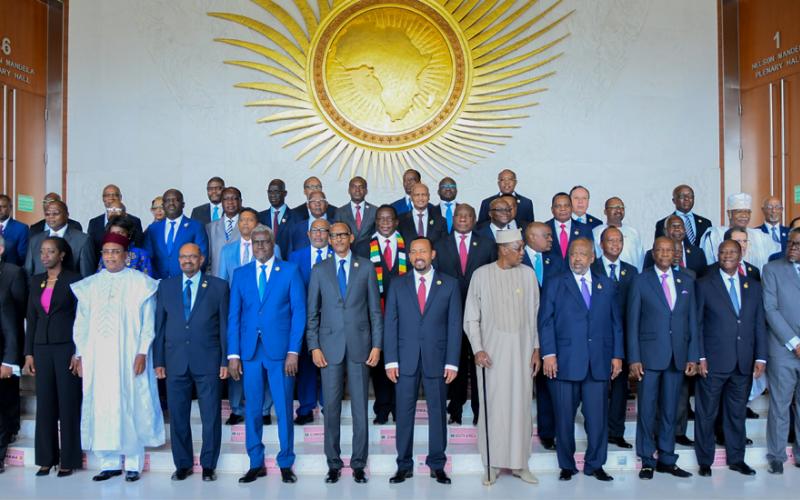Gender-based violence (GBV) remains a pervasive issue in many societies, and Kenya is no exception. Despite significant strides in recent years, there are still numerous challenges in addressing the root causes and consequences of gender-based violence. According to a report by the UN Office on Drugs and Crimen in 2022, Kenya recorded 725 femicide cases. We look at the multifaceted aspects of gender-based issues in Kenya, exploring the shaming of GBV victims, civil society organization (CSO) protests, government actions, and inactions, and the role of the international community, and suggest a way forward.
Shaming of Gender-Based Violence Victims:
One major obstacle in the fight against gender-based violence in Kenya is the prevalent culture of victim-blaming and shaming. Society often places the burden on survivors to prove their innocence rather than holding perpetrators accountable. This not only perpetuates a cycle of silence but also discourages victims from reporting incidents, fearing judgment and social ostracization.
From 2016 to 2023, the Africa Data Hub recorded the tragic deaths of 546 women solely because of their gender. Astonishingly, 75% of all female victims, including girls, fell prey to violence inflicted by intimate partners, former partners, or family members. Disturbingly, the menace of violence against women and girls manifests at an early age, with over 30% having endured sexual, psychological, or physical abuse by the time they reach 15 years old.
CSOs and Advocacy:
In Kenya, protests have rocked the streets as various CSOs have been at the forefront of awareness campaigns, and legal reforms aimed at dismantling the culture of shame surrounding GBV. These organizations amplify the voices of survivors, providing them with a platform to share their stories without fear of retribution.
The Femicide Count Kenya, which tracks reported killings through local news, documented 58 deaths classified as femicides from January to October 2022. In 2023, the organization reported a disturbing increase, recording a minimum of 152 killings – the highest in the past five years. Kenya, akin to numerous African nations, has ratified treaties aimed at addressing gender-based violence, such as the UN Convention on the Elimination of All Forms of Discrimination against Women (CEDAW) and the African Charter on Human and Peoples’ Rights.
National laws, including the Sexual Offences Act, criminalize violence against women in Kenya. Additionally, the country’s police force has established a specialized gender desk. However, activists contend that government policies remain largely ineffective in combating the issue.
Government Actions and Inactions:
Numerous organizations and coalitions dedicated to gender equality have urged Kenya’s government to train and assist the National Police Service and the Office of the Director of Public Prosecution in their efforts to investigate and prosecute cases of gender-based violence and to prevent and ensure accountability for femicide.
The Kenyan government has taken steps to address gender-based issues, including enacting laws and policies aimed at protecting victims. However, challenges persist, ranging from the slow implementation of existing laws to gaps in the judicial system. The government’s commitment to enforcing existing legislation and fostering a culture of zero tolerance for gender-based violence needs to be reinforced.
The Kenyan Constitution has clauses that specifically protect women’s rights and shield them from abuse. Article 43 highlights the right to the best possible level of health, whereas Article 28 ensures the right to personal security and dignity. These fundamental requirements are flagrantly and directly violated in most cases by the state’s inability to stop femicide.
The International Community:
International support and collaboration are vital in addressing gender-based issues globally. Kenya has received assistance from various international organizations, including the United Nations and non-governmental organizations, in its efforts to combat GBV. The international community can play a crucial role in influencing policy changes, providing resources, and fostering partnerships to strengthen Kenya’s response to gender-based issues.
UN Women takes the lead in various initiatives aimed at preventing femicide and gender-based violence in Kenya. One such effort involves providing specialized training to police personnel. These programs equip officers with the skills to identify potential femicide indicators, understand the unique challenges faced by women, and promote a victim-centered approach in law enforcement.
To date, UN Women has successfully trained over 600 officers within Kenya’s National Police Service, National Transport and Safety Authority, and informal transport sectors.
Additionally, UN Women actively supports survivors of gender-based violence through collaborations with local groups providing counseling, legal aid, and access to secure shelters. By partnering with five civil society organizations in Kenya, UN Women has facilitated psycho-social support for approximately 40,000 survivors and provided legal aid assistance to around 1,000 individuals.
The Way Forward
To create a lasting impact, a multi-faceted approach is necessary to address gender-based issues in Kenya:
- Strengthening Legislation and Enforcement: The government must ensure the swift implementation of existing laws, closing loopholes and addressing shortcomings in the legal system. Strict enforcement and punishment for perpetrators are essential to deter future incidents.
- Comprehensive Education and Awareness: Initiatives focused on educating the public about the impact of gender-based violence and fostering a culture of empathy and respect are crucial. This includes school programs, community workshops, and media campaigns.
- Empowering Survivors: Support systems for survivors should be expanded, providing counseling, legal aid, and resources to rebuild their lives. Breaking the silence surrounding GBV requires creating an environment where survivors feel safe and supported.
- Collaboration with Civil Society: The government should actively engage with CSOs, considering them valuable partners in the fight against gender-based violence. Joint efforts can amplify the impact of awareness campaigns, policy advocacy, and support for survivors.
- International Collaboration: Continued collaboration with the international community can enhance resources, expertise, and best practices. This involves fostering partnerships, sharing information, and working collectively to eradicate gender-based violence.
Addressing gender-based issues in Kenya requires a comprehensive and collaborative effort from all sectors of society. By challenging ingrained cultural norms, strengthening legislative frameworks, and fostering international partnerships, Kenya can make significant strides toward a future free from gender-based violence. Society needs to recognize the urgency of this issue and collectively work towards creating a safer, more equitable environment for all.


